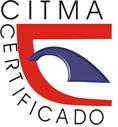LEARNING SCENARIOS FOR THE 21ST CENTURY
Keywords:
Learning scenarios, traditional paradigm, methodology, project work, pedagogical innovationAbstract
The changes that occurred in the late twentieth and early 21st century have accentuated the inadequacy of the current school model and confirmed the emergence of a new paradigm reconfigured and remade of traditional pedagogical practices. Globalization, the acceleration of knowledge, the explosion of the information society, growing cultural diversity, etc., have required new approaches, strange and perhaps radical to the school, but necessary and urgent, essential for overcoming it. Nevertheless, the imperatives of change and because it insists on maintaining the contradiction, the school has the "banking" concept, denies the dialogicity as the essence of education and is thus antidialogical. The research reported here focused on the qualitative paradigm, whose ethnographic approach sought from the analysis of the pedagogical practices of two educators to understand and interpret emerging learning contexts in two groups of pre-school education. It was concluded that several methodologies are used, namely the project work methodology in convergence with the constructivist conception of learning, as well as, expositive approaches representative of the traditional paradigm.

















